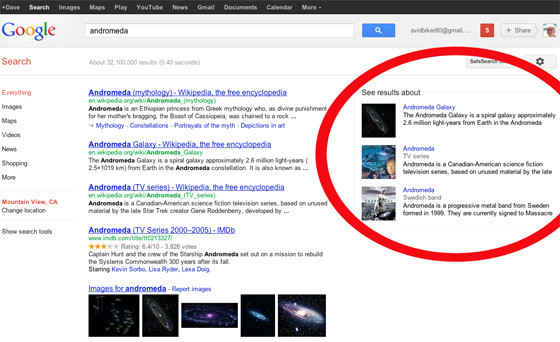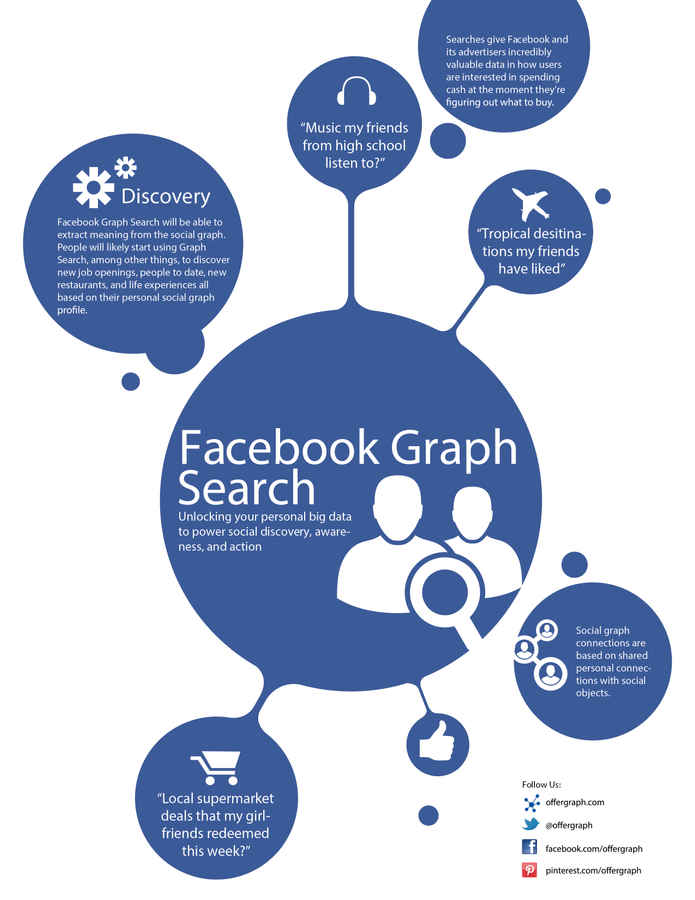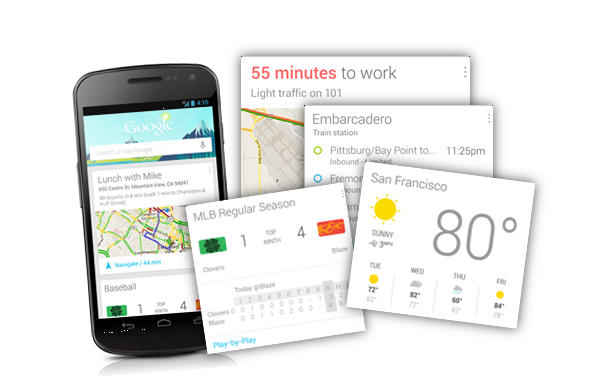The hottest trends in Search and what the future holds
We look at how search has evolved over the years. With the increase in the hard disk size of personal computers, the search function has become a part of our daily existence.

Can you imagine your life without a search box? Probably not. Search has become such a big part of our daily lives that it is inconceivable to survive a single day without using some kind of search technology. Remember the days when your library’s computer had the ability to just search a book by name or worse, it would only search based on the Dewey Decimal Classification number? Today, you can search each and every page of a book available on Google Books in no time. The search revolution began and took off so fast that we didn’t even realize the power it gave us. Today you name something and it is searchable, which means you can search everything ranging from jobs to spouses to houses.
 Survey
SurveyThe only limit to your search is the availability of content online. Before Twitter became popular, who could have thought #hashtags would be like little windows into peoples’ thoughts? Before You Tube became popular, we never imagined that practically any conceivable video would be available online. Before digital restaurant menus were introduced, it was unimaginable to search restaurant menus online. The complex algorithms used by search engines ensure that results are more and more relevant. Companies such as Google, Microsoft and Facebook are trying harder to get to that next big breakthrough in search technology. One thing that we can be certain of is that whatever that next big thing is, it needs to be contextually aware, personalized and omnipresent.
CONTENT-DRIVEN SEARCH
Think about what you searched for yesterday. It could have been a code, images, text, a restaurant, a book, a place on a map or cat videos. Search has gotten pretty specific over the years. Crawlers aim to contextually identify images and now you can search for “similar” images too.
A lot of content was already there on the Web and the way websites have learnt to structure search has made the whole process much faster and convenient. Take the case of books; Google Books has digitized such an enormous amount of content and thus made each and every page of those books searchable word by word.
With Goggle Maps, it is possible to search for any place, distance between places etc with just a click of the mouse. Then there are websites such as Quora and Yahoo Answers where content is structured in the form of questions. Add to it intelligent tagging and these websites make it super easy to find for answers to your questions.
So if there’s anything you can’t search, it is most likely something that is still not digitized and still not available on the Web.
SEMANTIC SEARCH
With tons of information on the Web, it is becoming tedious for companies to deal with this overwhelming volume of data. Though big data solutions such as Hadoop are working their way around this problem of plenty, searching this huge volume of data for relevant results is what major search engines are struggling with. This is where Semantic Search comes in. It’s about associating meaning to the search terms and queries. With semantic search, the search engine aims to be aware of the context of your search query and thus understand what you actually want to search. It improves the accuracy and significance of the search results by understanding the contextual meaning of your query.
Semantic search is not about simply matching strings. The idea is to consider synonyms, common spelling errors, variations in languages, same words with multiple meanings, locational information and domain. The search engine attempts to understand what you truly intended to search. For example, if you’re planning your vacation, you just enter your family’s preferences and you are given matching travel destinations automatically.
In May 2012, Google came up with Knowledge Graph that links context to your searches using the idea of “things and not strings”. Knowledge Graph relies on information from credible sources such as Wikipedia and gives you a set of card results for your search query. These cards are connected with each others based on relationships. Based on this technology Google Play showcased face recognition to dig you up an information card about the actors in the movie you are watching. When it comes to search terms, language can be ambiguous. If you search for Lincoln, you may be searching for the movie, the president or even an old beat up car. Google’s Knowledge Graph tries to show you a card with disambiguated information. Knowledge Graph connects the huge volume of data on web based on relationships and relevance.
Recently in March 2013, Facebook announced the Graph search feature which is a step ahead in semantic search. It takes into consideration the personal relationships, likes, dislikes and preferences and searches for the result within the information available in your Facebook network. Also, it lets you search using natural language queries rather than keywords. The search is powered by the data that Facebook has accumulated since its launch including pages, public posts, check-ins, places, events, etc. and is personalized for you. With Graph search “My friends who work at Zynga” and “My friends who used to work at Zynga” will lead to different sets of results as it is based on context and understands your query well. The time may not be far when you can just ask a search engine for which tablet you should buy and it will give you results based on tablets that your friends own, their reviews, tablets popular in your area etc.

SOCIAL SEARCH: DIGITIZING PEOPLE
With social search, the results to your queries will depend upon the content accessible to the search engine about your circles on social networks such as Google Plus, Facebook etc. Your search about “which is the best restaurant in Mumbai” will result in options keeping in mind the restaurants your friends have been to (resulting in Facebook and Four-square check-ins), restaurants you have been to in the past, restaurants that are geographically near you, restaurants that are rated high on social networks and other such contextual attributes.
Search engines such as Bing and Google have already started to show you popular search results based on the fact that your friends or friends of friends like those results. Thus, social graphs and social search can lead to subjective queries with more personal results. This also has tremendous power of marketing and advertising as advertisers can now target you based on your personal preferences.
For marketers too Social Search keeps track of brand mentions on social networks and accordingly alters your results. At present Bing successfully does this by pulling results from Gmail, Twitter, Facebook etc in a dedicated social column. “People and Pages on Google Plus” is a dedicated column on Google search that shows only results from Google Plus.
In the past, whenever we had doubts about, let’s say, where to get a haircut in Mumbai, we used to ask our friends or colleagues around us by emailing or calling them, but with social graph you can actually do the same thing with a single search query and get the most appropriate options. Bing now allows you to search your friends photos on the search engine and shows them in a Pinterest style layout. And you can even search the captions of the photos. So now go and search something cool on Facebook and see what your friends say about it. But wait, if you just want to shout out, without wanting to type, Voice search is the answer.
CONVERSATIONAL SEARCH: TALK IT OUT
Voice search lets you speak out your search queries and get text results. Conversational search on the other hand gets you the result in the form of a voice output. Yes, so now your computer talks to you. Google conversational search and Apple’s Siri are two encouraging first steps in this space.
Apple’s Siri voice search was introduced in Apple iPhone 4 and is like those Sci-Fi movie personal assistants that help you find places and remember meetings. Siri is like your girlfriend who slowly gets to know your individual preferences over time, learns about you and tells you what you want to hear. Google’s conversational search is also an attempt to compete with Siri.
Google’s conversational search is available to any Chrome user who has an updated version. You can just speak to the search giant and it speaks back to you. Though it is still in development and is not very accurate, it is still the start of good things to come. When we asked Google about “Priyanka Chopra”, it could understand the term and threw up information about her. But when we said “Shahrukh Khan” the results were about the movie My Name is Khan. The search also recognizes the importance of past queries in a conversation and takes your past queries into consideration. For example, if you ask “Who is Barack Obama” and then follow it up with “Who is his wife”, Google automatically realizes the “his” in the second query. Very cool indeed. At the time of writing this story Google also rolled out a feature that allows people to search by saying “OK Google” as with the Google Glass voice command “OK Glass”! Google Now for mobile also has voice search.
If you haven’t tried Google Now voice assistant, go try it now. Use it to set alarms, schedule meetings, check real time weather and traffic conditions and a lot more. With Apple’s Siri and Google Now, not only has voice search became the next cool thing, these and other similarly awesome apps have brought the power of search to your mobiles in new and extraordinary ways.
MOBILE SEARCH: SEARCH EVERYWHERE
With everything around you going mobile why would search stay behind? Studies suggest that desktop/laptop searches are declining heavily and people use their mobiles to search for whatever they need. Your smart phones and tablets let you search a lot of specific content through apps in addition to web based results. All of us are starting to prefer apps when it comes to searching something specific such as restaurant or movie theater timings than a generic search engine.
Search engines are customizing their results if you are on a mobile device. For example, Yahoo mobile search gives you suggestions while typing; if you type burger it does not show you videos about burger making but rather the nearest place you can grab a burger. It knows your location, your time-zone all by itself.
Google Now shows you cards that are relevant to you without even asking. You can search for current sport scores, local information and places near you. Google Maps allow you to get real-time directions for driving or walking to a particular location. Apps such as Google Shopper let you search for products available in markets near you on the fly, while serving up reviews and letting you scan the bar-codes on the packages to know their prices etc. making our shopping experience more amazing than ever. With the advantages that mobile devices bring to the table such as location awareness, mobility and other sensor technologies, search will surely witness more stuff happening in the mobile space.
TREND-BASED SEARCH
The primary step in search is to have a search query. But, many of us just want to go online and read something interesting and trendy. Well, Google, Twitter etc. understand the need and serve us by showing us the trending searches and having “What’s Hot” sections; Google Trends shows you the relative popularity of a particular search term, Google Hot Trends shows you the top 20 hot and popular searches in the past hour. These include things that gain sudden popularity such as lay-offs in companies, hot tech announcements etc. So when you’re bored of scrolling through your Facebook timeline up and down failing to find anything interesting, go to Google Hot Trends.
Twitter started a revolution in trend based search by introducing hashtags. Tags are a way to contextually group tweets about a certain topic. You can search for relevant topics using hashtags. For example, if you want to know what people are talking about the latest reveal of Xbox One, you can simply search for #XboxOne on Twitter and get the latest thoughts on the topic. Twitter hashtags have shown great power in the community and you can find a hashtag for almost anything that’s happening today. Similar to Google Trends, Twitter has an option called #Discover that shows the latest happenings around you. As we see, Twitter is like a seismograph for human conversations.
THE SEARCH IMPACT
The search revolution started in the 1990’s and is till today a technology that has seen no limits. The way we search is changing, the search results are changing and revolutionary developments such as contextual and social search is having a great impact on how we search for things and perform other activities in real and virtual worlds.
Facebook Graph Search is a lot more than you think. You can find people exactly under an age with a set of specific interests. Doesn’t this sound like a typical dating website? You can find people who work or worked at a competitor’s company and poach them. You can find places your friends have been to and what they loved about them. These reviews will always matter more than the reviews you read on MakeMyTrip or any other similar website. With voice search, people with physical disabilities can quickly search whatever they wish to by simply talking to Google.
With social search, marketing and advertising business will change the way they target customers. The entire math of search engine optimization is changing. Businesses need to realize this change and adapt accordingly. In the recent reveal of the Xbox One, a lot of social media users tweeted and posted about their disappointment with the reveal. A quick search on Xbox One now shows results of what your friends think about Xbox One. This has tremendous significance for marketers. Imagine, the snowballing effect of opinions in the future!
FUTURE OF SEARCH
Speaking of the future, if you ask Google about the future of search, it visions something similar to sci-fi computers that have the ability to understand and respond to requests as a conversation anywhere, anytime. The future of search may not be Search at all. It may simply be something that can give us information we need without us needing to ask.


